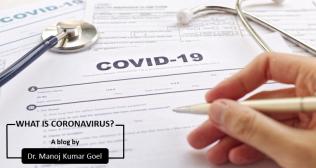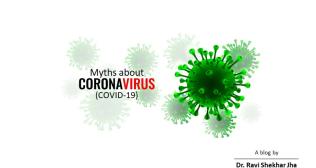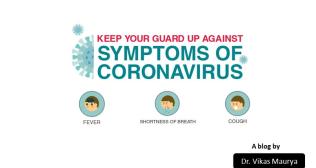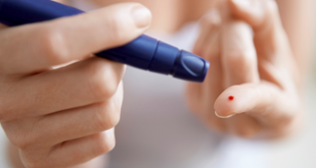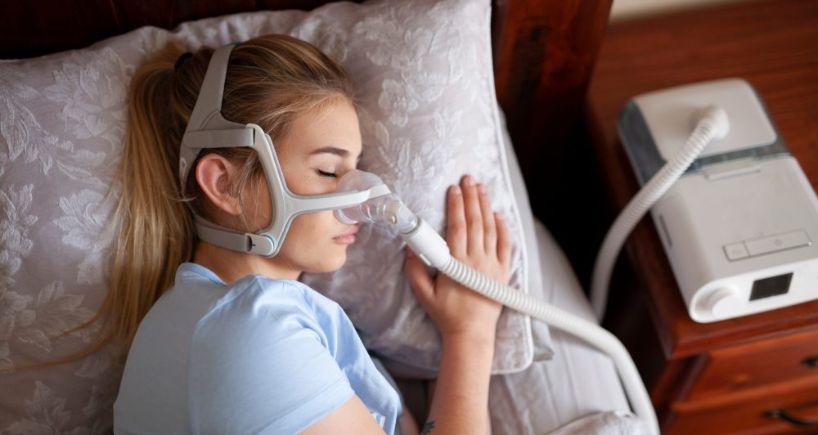
The Impact of Sleep Apnoea on Heart Function
Introduction
Sleep apnoea is a common sleep disorder that generally affects elderly individuals. It is characterized by repeated interruptions in breathing during sleep, which impairs the body's ability to obtain sufficient oxygen. It is often associated with snoring and daytime sleepiness, leading to impaired daytime functioning. Research suggests that long-term sleep apnoea can increase the risk of heart disease, irrespective of individual risk factors such as smoking, alcohol consumption, hypertension, obesity, diabetes, dyslipidaemia, and atrial fibrillation. This blog explores the impact of sleep apnoea on the heart and emphasizes the crucial need for awareness and intervention.
Types of Sleep Apnoea
- Obstructive Sleep Apnoea (OSA): This is the most common type, occurring when the upper airways are repeatedly blocked during sleep, reducing or stopping airflow. Factors such as obesity, large tonsils, or hormonal imbalances can increase the risk of developing obstructive sleep apnoea.
- Central Sleep Apnoea (CSA): This condition occurs when the brain fails to send the necessary signals to control breathing. CSA is relatively rare. In some cases, individuals may exhibit characteristics of both CSA and OSA.
Symptoms of Sleep Apnoea
Symptoms of sleep apnoea include episodes of breathing cessation, loud snoring, waking up suddenly with a gasping sensation, dry mouth, morning headaches, daytime sleepiness, difficulty concentrating, and irritability. If you or someone you know experiences these symptoms, it is important to consult a healthcare provider for diagnosis and treatment.
Understanding the Link Between Heart Health and Sleep Apnoea
Understanding how sleep apnoea affects cardiovascular function is crucial, as repeated interruptions in breathing can lead to significant drops in oxygen levels. These repeated episodes of low oxygen can affect the heart’s electrical system, leading to conditions such as arrhythmia. Additionally, this can place extra strain on the heart, making it work harder to pump blood efficiently throughout the body. Over time, this increased workload can contribute to serious conditions such as high blood pressure and, eventually, heart failure, especially in individuals with severe sleep apnoea. Moreover, research shows that individuals with untreated sleep apnoea, particularly OSA, are more likely to experience complications during surgery or other medical procedures due to compromised cardiovascular health. Additionally, sleep apnoea can lead to the formation of blood clots in the arteries, increasing the risk of stroke. It can also cause pulmonary hypertension and high blood pressure in the arteries of the lungs, further straining the heart. This underscores the importance of recognizing symptoms early and seeking appropriate treatment promptly.
Diagnosis of Sleep Apnoea
The diagnosis of sleep apnoea involves evaluating medical history and performing a complete physical examination. Some of the tests include:
- Sleep Studies: These involve comprehensive tests such as polysomnography, which monitors various body functions and is typically conducted at sleep centers. Another option is Home Sleep Apnoea Testing, a simplified, non-invasive version of a sleep study that measures heart rate, oxygen levels, and respiration while tracking sleep data. Both methods are effective for diagnosing sleep apnoea.
- Miscellaneous Tests: Additionally, tests such as oximetry and blood tests may be conducted for further evaluation of specific parameters. If a primary care doctor suspects sleep apnoea, they might refer you to a sleep specialist for further evaluation and treatment.
Sleep Apnoea Treatment
Treatment methods for sleep apnoea encompass lifestyle modifications, the use of medical devices, and surgery.
- Lifestyle Modifications: This includes weight loss, exercise, and avoiding smoking and alcohol. Additionally, sleeping on your side instead of your back can help prevent airway blockage.
- Medical Devices: The use of sleep apnoea devices is considered an effective treatment for moderate to severe sleep apnoea. Commonly used devices are continuous positive airway pressure (CPAP) machines and sleep apnoea mouth guards. CPAP involves wearing a mask over the mouth or nose during sleep, which ensures a continuous stream of air and keeps the airway open.
- Mouth Guards: A mouth guard for sleep apnoea, also known as a mandibular advancement device, looks like a sports mouth guard and is designed to push the lower jaw forward. This device must be positioned by an orthodontist or dentist. It works by repositioning the lower jaw slightly forward, which prevents the tongue and soft tissue in the back of the throat from blocking the airway.
Conclusion
Sleep apnoea is a serious condition that increases the risk of cardiovascular events and impairs heart health. Early diagnosis and treatment through lifestyle modifications, medical devices, and other interventions are essential for effectively managing the condition. Raising awareness about its impact on heart health is crucial for encouraging steps toward achieving better cardiovascular wellness.
Popular Searches :
Hospitals: Cancer Hospital in Delhi | Best Heart Hospital in Delhi | Hospital in Amritsar | Hospital in Ludhiana | Hospitals in Mohali | Hospital in Faridabad | Hospitals in Gurgaon | Best Hospital in Jaipur | Hospitals in Greater Noida | Hospitals in Noida | Best Kidney Hospital in Kolkata | Best Hospital in Kolkata | Hospitals in Rajajinagar Bangalore | Hospitals in Richmond Road Bangalore | Hospitals in Nagarbhavi Bangalore | Hospital in Kalyan West | Hospitals in Mulund | Best Hospital in India | | Cardiology Hospital in India | Best Cancer Hospital in India | Best Cardiology Hospital in India | Best Oncology Hospital In India | Best Cancer Hospital in Delhi | Best Liver Transplant Hospital in India
Doctors: Dr. Rana Patir | Dr. Rajesh Benny | Dr. Rahul Bhargava | Dr. Jayant Arora | Dr. Anoop Misra | Dr. Manu Tiwari | Dr. Praveer Agarwal | Dr. Arup Ratan Dutta | Dr. Meenakshi Ahuja | Dr. Anoop Jhurani | Dr. Shivaji Basu | Dr. Subhash Jangid | Dr. Atul Mathur | Dr. Gurinder Bedi | Dr. Monika Wadhawan | Dr. Debasis Datta | Dr. Shrinivas Narayan | Dr. Praveen Gupta | Dr. Nitin Jha | Dr. Raghu Nagaraj | Dr. Ashok Seth | Dr. Sandeep Vaishya | Dr. Atul Mishra | Dr. Z S Meharwal | Dr. Ajay Bhalla | Dr. Atul Kumar Mittal | Dr. Arvind Kumar Khurana | Dr. Narayan Hulse | Dr. Samir Parikh | Dr. Amit Javed | Dr. Narayan Banerjee | Dr. Bimlesh Dhar Pandey | Dr. Arghya Chattopadhyay | Dr. G.R. Vijay Kumar | Dr Ashok Gupta | Dr. Gourdas Choudhuri | Dr. Sushrut Singh | Dr. N.C. Krishnamani | Dr. Atampreet Singh | Dr. Vivek Jawali | Dr. Sanjeev Gulati | Dr. Amite Pankaj Aggarwal | Dr. Ajay Kaul | Dr. Sunita Varma | Dr. Manoj Kumar Goel | Dr. R Muralidharan | Dr. Sushmita Roychowdhury | Dr. T.S. MAHANT | Dr. UDIPTA RAY | Dr. Aparna Jaswal | Dr. Ravul Jindal | Dr. Savyasachi Saxena | Dr. Ajay Kumar Kriplani | Dr. Nitesh Rohatgi | Dr. Anupam Jindal |
Specialties: Heart Lung Transplant | Orthopedic | Cardiology Interventional | Obstetrics & Gynaecology | Onco Radiation | Neurosurgery | Interventional Cardiology | Gastroenterologist in Jaipur | Neuro Physician | Gynecologist in Kolkata | Best Neurologist in India | Liver Transfer







